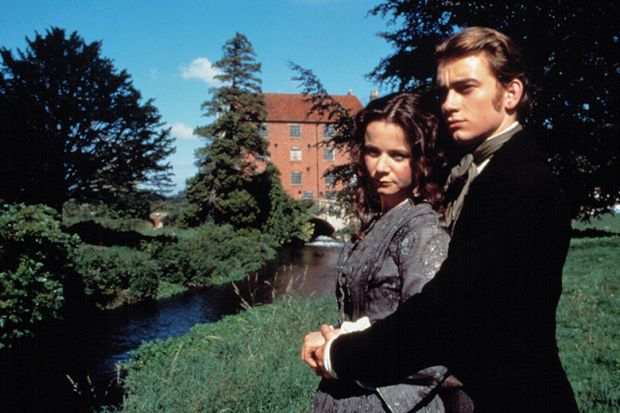“We so seldom declare what a thing is except by saying it is something else,” said George Eliot. That our thinking is steeped in metaphor – constantly making what we perceive more, or other, than it is – is the premise of Freudianism. Freud, however, for all his boundary-dissolving, assumed that humans have, virtually from birth, a sense of boundaried individual selfhood. It was Melanie Klein’s “object relations theory” that elucidated the baby’s initial symbiosis with the mother, and Donald Winnicott who claimed that we necessarily “learn to be alone” by internalising the “holding environment” that the mother at first provides.
Alicia Mireles Christoff argues that the impact of the Victorian novel on psychoanalysis, and the “profound relationality” of novel reading, has been underestimated. Looking at Thomas Hardy’s Tess of the D’Urbervilles and The Return of the Native, and George Eliot’s Mill on the Floss and Middlemarch, in the light of psychoanalytic theories, mainly those of Winnicott, Christopher Bollas and Wilfred Bion, she delicately analyses the way Hardy’s intermingling of mood and landscape (what Ruskin, pejoratively, called the pathetic fallacy) embraces not only his characters but also the reader.
We don’t have to decide, says Christoff, whether the “tightly-wrapped buds”, soft brown fern or fetid fungi “belong to inner or outer reality”. When Tess wanders through rank, juicy grass, we lasciviously feel her damp, naked arms with our fingertips, yet simultaneously sense the sap and cuckoo-spittle as if her skin “were our own”. We simultaneously watch and inhabit Tess, and ourselves; and this sense of observed interiority is, says Christoff, what Victorian novels and psychoanalysis have helped to foster. For Hardy, objects are often “located indeterminately between the physical and metaphysical”. Often his characters “charge” the surrounding air, conveying “moods, views of the world, and ways of being that are palpably felt by others”. With Eliot, too, thought and feeling, rather than being watertight, can be pooled between two people. The joys of what Winnicott calls “unintegration” (the baby’s state) can be recovered. But equally (Christoff quotes Bollas), in aesthetic experience we relive the baby’s “uncanny fusion”.
Both Hardy and Eliot, as Christoff shows, dizzyingly shift the reader’s focus from the intensely close-up (dried-up harebells whispering, motes dancing in light and the “roar on the other side of silence”) to vast expanses of space and time. “Spaces are never just themselves,” she says. She insists on Hardy’s “under-remarked geopolitical imagination” – in charting the minute differences in soil, crops and plants across Egdon Heath, he “asks us” to see this “hyperlocal setting” as somehow incorporating the history and geography of Britain’s empire. Eliot’s Maggie Tulliver is deliberately “racialized” by constant references to her brown skin, as is Hardy’s dark-eyed Eustacia Vye, who acts the Turkish knight in the mummers’ play. “Colonial and decolonial struggle”, Christoff claims, are the unacknowledged fault-lines in Victorian fiction.
Christoff writes beautifully and passionately, and her interpretations are fascinating, but the blurring of temporal boundaries can be anachronistic, and feels time-bound itself. Eliot is reprimanded for presenting the gypsies as alien, and Hardy for ending Return of the Native with the “white nationalist celebration” of dancing round a maypole. Christoff is determined to extend literary criticism “into a new and newly expansive ‘we’”, but sometimes seems to be stuck in a particular 21st-century moralism.
Jane O’Grady is a co-founder of the London School of Philosophy and taught philosophy of psychology at City, University of London. She is also the author of Enlightenment Philosophy in a Nutshell (2019).
Novel Relations: Victorian Fiction and British Psychoanalysis
By Alicia Mireles Christoff
Princeton University Press, 288pp, £34.00
ISBN 9780691193106
Published 17 December 2019




